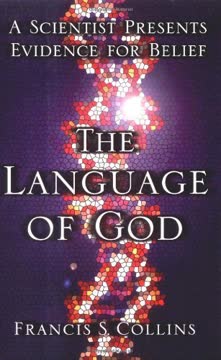Key Takeaways
1. Science and Faith: Complementary Truths
Science's domain is to explore nature. God's domain is in the spiritual world, a realm not possible to explore with the tools and language of science.
Distinct Domains. Science and faith, often perceived as conflicting, actually operate in separate realms. Science investigates the natural world through observation and experimentation, while faith addresses spiritual questions about meaning, purpose, and morality. Recognizing these distinct domains allows for a harmonious coexistence.
Mutual Enrichment. Embracing both science and faith can enrich human experience. Science provides profound insights into the material world, while faith offers guidance in the spiritual realm. Combining these perspectives leads to a more complete understanding of existence.
- Science: Explores the "how" of the universe
- Faith: Explores the "why" of human existence
Integration, Not Compartmentalization. Rather than compartmentalizing science and faith, strive for integration. This involves finding ways for these perspectives to inform and enhance each other, leading to a more holistic worldview.
2. The Moral Law: A Universal Signpost to God
If there was a controlling power outside the universe, it could not show itself to us as one of the facts inside the universe...The only way in which we could expect it to show itself would be inside ourselves as an influence or a command trying to get us to behave in a certain way.
Innate Sense of Right and Wrong. The Moral Law, an inherent understanding of right and wrong, exists universally among humans. This law transcends cultural differences and evolutionary explanations, suggesting a divine origin.
Evidence of a Transcendent Standard. The Moral Law is not merely a cultural construct or evolutionary byproduct. It is a universal standard that humans consistently violate, indicating a higher authority.
- Examples: Condemnation of oppression, murder, treachery, and falsehood across cultures
A Glimpse of God. The Moral Law serves as a signpost to God, revealing His nature and demanding a serious consideration of its origin. It suggests a theistic God who desires a relationship with humanity.
3. The Big Bang: A Universe with a Divine Beginning
The Big Bang cries out for a divine explanation. It forces the conclusion that nature had a defined beginning. I cannot see how nature could have created itself. Only a supernatural force that is outside of space and time could have done that.
A Defined Beginning. The Big Bang theory, supported by extensive scientific evidence, indicates that the universe had a singular beginning. This challenges the idea of a steady-state universe and suggests a supernatural cause.
Limits of Science. The Big Bang demonstrates the limits of science, as it cannot explain what came before or who was responsible. This opens the door for theological interpretations.
- Robert Jastrow: "For the scientist who has lived by his faith in the power of reason, the story ends like a bad dream."
Harmony with Creation Narratives. The Big Bang aligns with faith traditions that describe the universe as created by God from nothingness (ex nihilo). It supports the idea of a divine act of creation.
4. Evolution: God's Elegant Mechanism for Life
There is grandeur in this view of life, with its several powers, having been originally breathed by the Creator into a few forms or into one; and that, whilst this planet has gone cycling on according to the fixed law of gravity, from so simple a beginning endless forms most beautiful and most wonderful have been, and are being evolved.
Descent with Modification. Darwin's theory of evolution by natural selection provides a compelling explanation for the diversity and complexity of life. It suggests that all species are descended from common ancestors.
Molecular Support. The study of genomes provides strong molecular support for evolution, demonstrating the relatedness of all species through DNA similarities. This includes shared genes, chromosome structures, and ancient repetitive elements.
- 96% DNA similarity between humans and chimpanzees
Harmony with Faith. Evolution, as a mechanism, does not negate the role of a Creator. It can be seen as God's elegant plan for creating life, allowing for both scientific understanding and spiritual awe.
5. The Human Genome: Evidence of Shared Ancestry
At the DNA level, we are all 99.9 percent identical. That similarity applies regardless of which two individuals from around the world you choose to compare. Thus, by DNA analysis, we humans are truly part of one family.
Genetic Unity. The human genome reveals a remarkable degree of similarity among all individuals, indicating a shared ancestry. This supports the idea that humans are part of one family.
Common Ancestry with Other Species. Comparing the human genome with those of other organisms reveals significant similarities, particularly in protein-coding genes. This provides further evidence for descent from a common ancestor.
- Similar gene order between human and mouse chromosomes
- Shared ancient repetitive elements in human and mouse genomes
Challenges to Special Creation. The presence of nonfunctional genes (pseudogenes) and shared genetic elements in different species challenges the idea of special creation. It suggests a common evolutionary history.
6. Genesis: Poetry, Not a Science Textbook
In matters that are so obscure and far beyond our vision, we find in Holy Scripture passages which can be interpreted in very different ways without prejudice to the faith we have received.
Multiple Interpretations. The creation story in Genesis 1 and 2 is a powerful and poetic narrative, but it can be interpreted in various ways. It is not necessarily intended as a literal, step-by-step account of the origins of the earth and humankind.
Augustine's Wisdom. Saint Augustine cautioned against turning biblical texts into precise scientific treatises. He recognized the risks of taking a rigid stance on one interpretation, especially in matters beyond our vision.
- "What kind of days these were, it is extremely difficult, or perhaps impossible for us to conceive."
Focus on God's Character. The primary intention of Genesis is to instruct readers about God's character, not to teach scientific facts. It uses poetic language and allegory to convey spiritual truths.
7. Theistic Evolution: Harmony Between Science and Faith
The heavens declare the glory of God; the skies proclaim the work of His hands.
God's Guiding Hand. Theistic evolution (BioLogos) proposes that God used evolution as the mechanism to create life, including humans. This view integrates scientific understanding with a belief in a Creator.
Key Premises of Theistic Evolution:
- The universe was created by God.
- The properties of the universe are precisely tuned for life.
- Evolution and natural selection led to biological diversity and complexity.
- Humans share a common ancestor with other living things.
- Humans are unique in their spiritual nature.
Reconciling Science and Belief. Theistic evolution allows for a satisfying harmony between science and belief. It acknowledges the power of science to investigate the natural world while affirming the existence of a Creator.
8. Bioethics: Navigating Moral Dilemmas with Wisdom
Knowledge itself has no intrinsic moral value; it is the way in which that knowledge is put to use that acquires an ethical dimension.
Ethical Considerations in Biotechnology. Advances in biotechnology and medicine raise complex ethical questions. Bioethics is the discipline that considers the morality of these applications.
Universal Ethical Principles:
- Respect for autonomy
- Justice
- Beneficence
- Nonmaleficence
Balancing Principles. Ethical dilemmas often arise when these principles conflict. Different individuals and cultures may prioritize these principles differently, leading to diverse perspectives.
9. Agape: The Essence of Unconditional Love
Because it is the nature of the scorpion to sting, why should I deny my own nature to save it?
Selfless Love. Agape, or selfless altruism, is a major challenge for evolutionists. It cannot be accounted for by the drive of individual selfish genes to perpetuate themselves.
Agape in Action. Examples of agape include Oskar Schindler's efforts to save Jews during World War II and Mother Teresa's selfless giving to the sick and dying of Calcutta. These acts of love transcend self-interest.
- Oskar Schindler: Risked his life to save over a thousand Jews
- Mother Teresa: Dedicated her life to serving the poor and sick
A Reflection of God's Nature. Agape reflects God's nature, demonstrating a love that seeks no recompense. It is an affront to materialism and naturalism, and it is the sweetest joy that one can experience.
10. The Journey of Seeking Truth: A Personal Calling
You came here for one reason. You came here for me.
Personal Encounters. The most meaningful experiences often arise from simple acts of kindness and personal connections. These encounters can reveal profound truths and a sense of purpose.
Harmony with God's Will. Aligning oneself with God's will involves seeking goodness and truth, both in the scientific and spiritual realms. This requires humility, compassion, and a willingness to serve others.
- The young Nigerian farmer's words: "You came here for me."
A Call to Action. Each individual is called to reach out to others and seek harmony between science and spirit. This involves embracing both reason and worship, and recognizing the interconnectedness of all things.
Last updated:
FAQ
1. What is The Language of God by Francis S. Collins about?
- Science and faith integration: The book explores how scientific discovery, especially in genetics and genomics, can coexist with and even inspire belief in God.
- Personal journey: Collins shares his transformation from atheism to faith, using his experiences as a scientist and leader of the Human Genome Project.
- Addressing conflicts: It tackles common objections to faith, such as the problem of suffering, miracles, and the perceived conflict between evolution and religion.
- Rational faith: Collins argues that belief in God is a rational choice and that science and faith are complementary, not contradictory, worldviews.
2. Why should I read The Language of God by Francis S. Collins?
- Unique perspective: Collins is both a renowned geneticist and a committed Christian, offering a rare, balanced view on the science-faith dialogue.
- Bridging divides: The book provides thoughtful responses to both scientific skepticism and religious literalism, promoting respectful dialogue.
- Personal and universal relevance: Collins’s journey and arguments resonate with anyone grappling with questions about meaning, morality, and the origins of life.
- Practical implications: The book discusses real-world issues like genetic testing, medical ethics, and how faith can inform scientific practice.
3. What are the key takeaways from The Language of God by Francis S. Collins?
- Harmony is possible: Science and faith can be harmoniously integrated, each addressing different aspects of human experience.
- Evolution and belief: Accepting evolution does not preclude belief in a Creator; evolution can be seen as God’s method of creation.
- Moral Law argument: The universal human sense of right and wrong points toward a divine source, supporting the rationality of faith.
- Rejecting extremes: Both atheistic materialism and religious fundamentalism are critiqued as incomplete approaches to truth.
4. What is Francis S. Collins’s personal faith journey as described in The Language of God?
- From atheism to faith: Raised in a non-religious environment, Collins initially identified as an atheist, influenced by his scientific training.
- Moral Law discovery: Reading C.S. Lewis’s "Mere Christianity" and encountering the concept of a universal Moral Law led him to reconsider the plausibility of God.
- Personal encounters: Experiences with patients and deep reflection on suffering and meaning prompted his leap to faith.
- Christian commitment: Collins ultimately embraced Christianity, convinced by the life and resurrection of Jesus Christ.
5. How does The Language of God by Francis S. Collins address the relationship between science and faith?
- Complementary worldviews: Collins argues that science explains the "how" of the universe, while faith addresses the "why," allowing both to coexist.
- Truth cannot contradict truth: He insists that scientific and spiritual truths must ultimately be compatible, as both seek to understand reality.
- Critique of conflict: The book challenges the notion that science and faith are inherently at war, advocating for mutual respect and dialogue.
- Personal integration: Collins’s own life exemplifies how rigorous scientific inquiry can deepen, rather than diminish, spiritual faith.
6. What is the Moral Law argument in The Language of God and why is it important?
- Universal sense of morality: Collins describes the Moral Law as a shared human awareness of right and wrong that transcends culture and evolution.
- Evidence for God: He argues that this innate morality points to a personal, holy God who desires a relationship with humanity.
- Pivotal in faith journey: The Moral Law was central to Collins’s transition from atheism to belief, providing a rational foundation for faith.
- Challenge to materialism: The argument questions whether purely evolutionary or cultural explanations can fully account for human morality.
7. How does Francis S. Collins in The Language of God reconcile evolution and belief in God?
- Theistic evolution (BioLogos): Collins advocates for "BioLogos," the view that God created life through the process of evolution.
- No conflict with faith: He asserts that accepting evolution as a scientific fact does not negate belief in a purposeful Creator.
- Genomic evidence: The book highlights overwhelming genetic evidence for common ancestry among species, including humans and primates.
- Rejecting false dichotomies: Collins critiques both creationism and atheistic evolutionism, promoting a balanced, evidence-based approach.
8. What are the four main options for relating science and faith in The Language of God by Francis S. Collins?
- Atheism/Agnosticism: Science is seen as incompatible with faith; belief in God is rejected or suspended due to lack of evidence.
- Creationism: Faith is prioritized over science, leading to a literal interpretation of Genesis and rejection of evolution and an ancient earth.
- Intelligent Design: Complexity in biology is attributed to direct divine intervention, but Collins critiques this as scientifically untestable.
- BioLogos (Theistic Evolution): Science and faith are harmonized; God creates through evolution, which Collins advocates as the most satisfying position.
9. How does Francis S. Collins interpret the Genesis creation account in light of modern science in The Language of God?
- Non-literal reading: Collins views Genesis 1 and 2 as poetic and allegorical, not as strict scientific accounts.
- Historical context: He references Saint Augustine and other theologians who questioned literal interpretations long before modern science.
- Compatibility with science: The sequence of creation events can be seen as broadly compatible with scientific discoveries when not read literally.
- Respect for scripture: Collins encourages thoughtful engagement with scripture, seeing scientific inquiry as a way to honor God’s gifts.
10. What is the significance of the Human Genome Project in The Language of God by Francis S. Collins?
- Genome as God’s language: Collins describes the human genome as a 3-billion-letter code, calling it "the language in which God created life."
- Scientific achievement: Leading the Human Genome Project was both a milestone in biology and a source of spiritual awe for Collins.
- Evidence for evolution: The genome reveals high genetic similarity among humans and shared DNA with other species, supporting common ancestry.
- Implications for medicine and faith: The project opened new avenues for disease understanding and treatment, reinforcing the harmony between science and faith.
11. What ethical issues related to genetics and medicine are discussed in The Language of God by Francis S. Collins?
- Genetic testing dilemmas: Collins explores the benefits and psychological impacts of genetic testing, as well as concerns about privacy and discrimination.
- Stem cell research: The book discusses the moral debates around embryonic stem cells, cloning, and the status of embryos, advocating for careful ethical consideration.
- Human enhancement: Collins addresses the ethics of using genetics for enhancement, warning against genetic determinism and the potential misuse of technology.
- Free will and genetics: He emphasizes that while genes influence behavior, environment and personal choices remain crucial, preserving the concept of free will.
12. What is Francis S. Collins’s view on miracles and their compatibility with science in The Language of God?
- Miracles as rare events: Collins defines miracles as rare, purposeful events that cannot be explained by natural laws.
- Philosophical openness: He argues that openness to the supernatural is necessary to fairly assess claims of miracles, rather than dismissing them outright.
- Bayesian reasoning: Collins uses probability theory to explain how one might rationally evaluate miracle claims, balancing skepticism with openness.
- Consistency with science: He maintains that belief in miracles does not undermine the regularity of natural laws, as miracles are exceptions, not the rule.
Review Summary
The Language of God receives mixed reviews. Some praise Collins' attempt to reconcile science and faith, appreciating his scientific explanations and personal story. Others criticize his arguments for God as weak and his understanding of theological issues as superficial. Many commend his call for a truce between science and religion. Some readers find the book informative and thought-provoking, while others consider it disappointing and flawed. Overall, reviewers acknowledge Collins' expertise in genetics but are divided on the effectiveness of his arguments for belief.
Similar Books

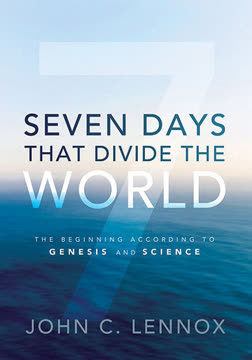

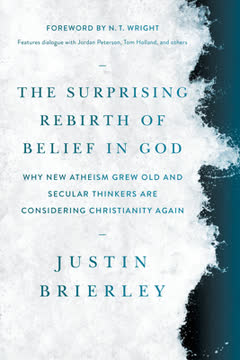
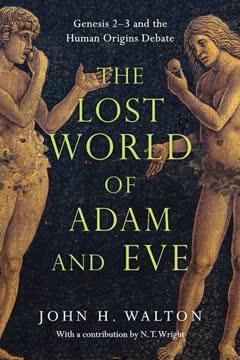

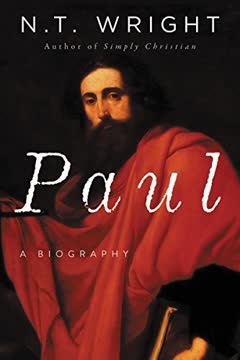
Download PDF
Download EPUB
.epub digital book format is ideal for reading ebooks on phones, tablets, and e-readers.
